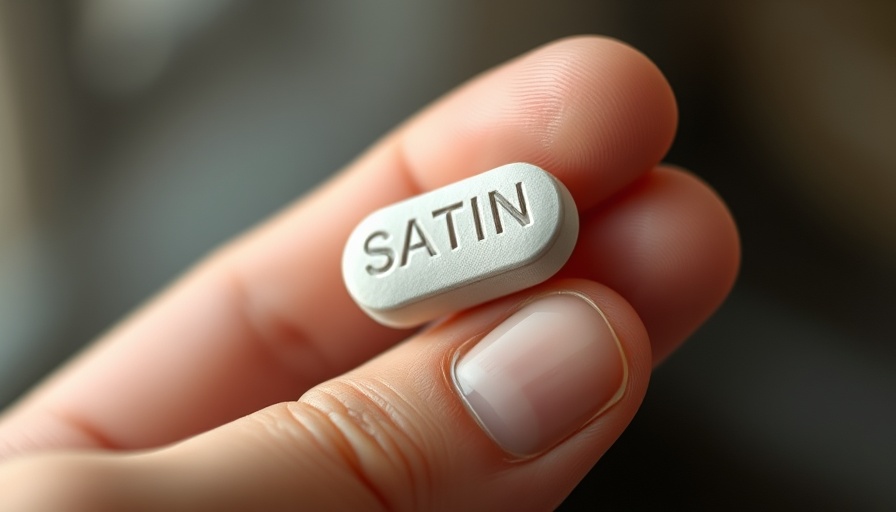
Understanding the High Rate of Statin Discontinuation
Statins have earned a reputation for helping reduce bad cholesterol (LDL-C) and, correspondingly, the risks associated with cardiovascular diseases, the leading cause of death worldwide. However, despite the compelling benefits, adherence to statin therapy remains a significant challenge, with studies revealing that 40% to 80% of patients do not fully comply with the treatment recommendations. This raises a critical question: Why do so many people stop taking these life-saving medications?
The Impact of Muscle Pain on Adherence
Muscle pain is a primary reason cited by individuals who discontinue statin use, with a significant number (up to 72%) of reported adverse effects being muscle-related. The condition known as statin-associated muscle symptoms (SAMS) has become a considerable concern for both patients and healthcare providers. While many anticipate that stopping the medication would ease these symptoms, for some, the pain can linger far beyond the cessation of the drug, complicating their perceptions and decisions.
The Placebo and Nocebo Effects: A Double-Edged Sword
Research surrounding the psychological components of statin-related side effects reveals a compelling phenomenon known as the nocebo effect, where negative expectations lead to real adverse outcomes. In clinical settings, individuals with foreknowledge of their statin regimen reported more muscle pain compared to those unaware of their treatment. This suggests that the understanding—both conscious and subconscious—of being on a particular medication can significantly alter a patient's experience of side effects. Clarity around these mental influences is essential in combating the stigma and misinformation surrounding statin use.
Combating Misconceptions and Stigma
As numerous patients express uncertainty regarding their statin regimens, it’s vital to dismantle the myths linked to these medications. Society's burgeoning connection to online resources can sometimes amplify unfounded fears and exaggerate side effect claims. Engaging in open discussions with healthcare providers can empower patients, allowing them to make informed choices about their treatment while decreasing reliance on potentially misleading online opinions.
Your Health Matters: Seeking Support
Educating oneself about the potential advantages of statins and advocating for transparency with healthcare professionals allows individuals to reclaim their health narrative. Taking an active role in one’s healthcare journey—by discussing concerns or alternative options—can lead to better outcomes and improved overall well-being. If you or someone you know is struggling with statin use due to adverse effects, reaching out to a healthcare professional to navigate these feelings is crucial.
 Add Row
Add Row  Add
Add 




Write A Comment